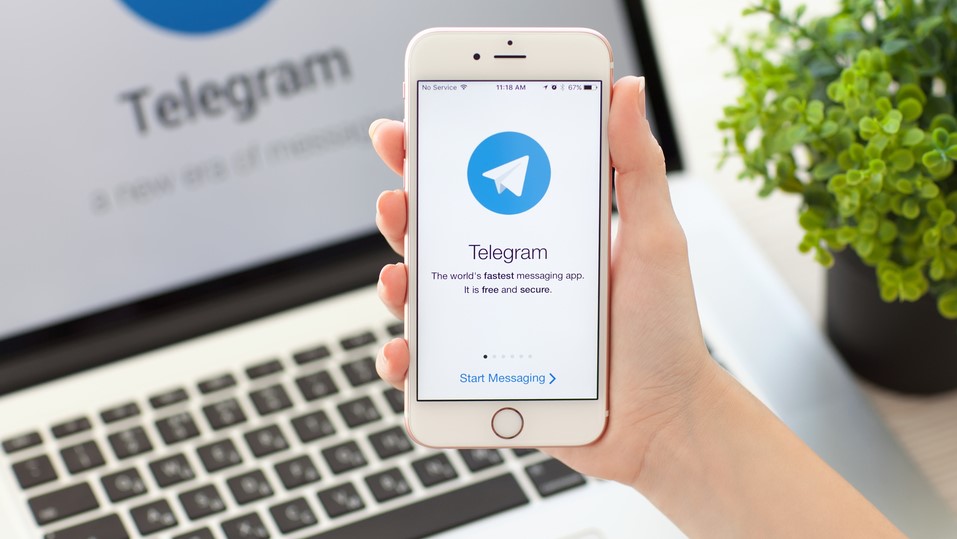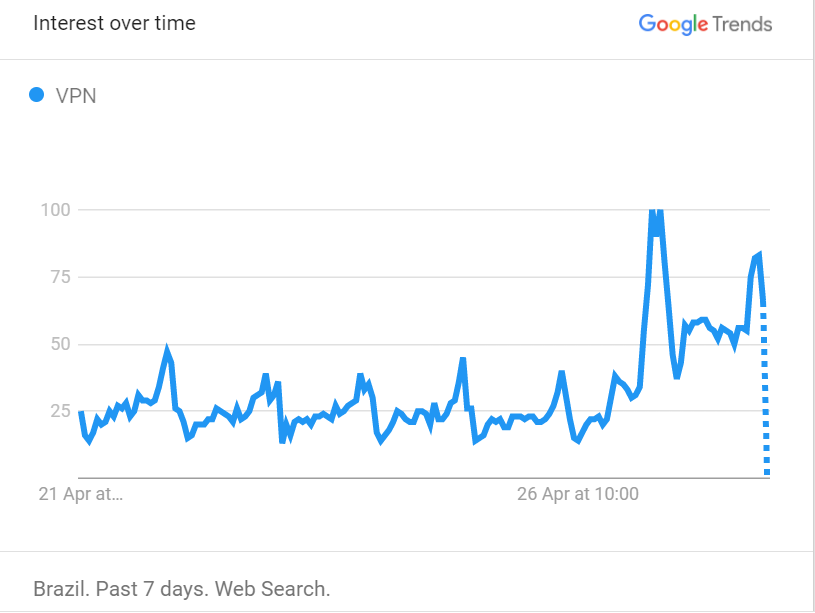Telegram banned in Brazil for failing to hand over data of neo-Nazi chats
An interest in VPN services is rising across the region

Sign up for breaking news, reviews, opinion, top tech deals, and more.
You are now subscribed
Your newsletter sign-up was successful
A Brazilian judge issued a temporary Telegram ban on Wednesday, alleging that the app failed to hand over data on neo-Nazi chat groups.
Telegram CEO Pavel Durov deemed the request as "technologically impossible," stating that the company is going to appeal the decision in court.
At the same time, a spike of interest in the VPN-related search terms on Google Trends shows how users in Brazil might be turning to VPN services to bypass the block and keep accessing the app.

Why is Telegram banned in Brazil?
The block on the popular encrypted messaging app comes as Brazil is facing a concerning rise in school violence, with some of the attacks linked to far-right extremist groups.
Authorities seem to have reason to believe that some of the perpetrators were active on neo-Nazi Telegram channels. Hence, the judge requested the company to access this evidence—something that Telegram might have refused to comply with.
"The facts shown by police authorities show a clear purpose of Telegram of not cooperating with the investigation," states the ruling from a federal court in the Espírito Santo state, the area where a violent attack in November killed four people and wounded 12, the Associated Press reported.
According to Telegram CEO, such a request is something that goes against how the privacy-focused service works in practice.
Sign up to the TechRadar Pro newsletter to get all the top news, opinion, features and guidance your business needs to succeed!
"Telegram's mission is to preserve privacy and freedom of speech around the world. In cases where local laws go against this mission or impose technologically unfeasible requirements, we sometimes have to leave such markets," wrote Durov on his official Telegram account.
"In Brazil, a court requested data that is technologically impossible for us to obtain. We are appealing the decision and are looking forward to the final resolution. No matter the cost, we will stand up for our users in Brazil and their right to private communication."
This isn't the first time that governments around the world have targeted Telegram.
More authoritarian countries like Russia, China and Iran see the app as a threat as its channels are mainly used to share counter-information. At the same time, democracies are also concerned that extremist groups may use the app to spread fake news and incite violence among users.
Last year, Brazil already issued a shutdown on Telegram for not cooperating with authorities. The block was lifted after five days as the company apologized to the Supreme Court, claiming a miscommunication due to an outdated email address occurred.
Now, Apple and Google have also been also ordered to make the app unavailable across their Brazilian app stores. In addition to the suspension of the service, Telegram will also be fined a daily fee of about $200,000 for noncompliance. It's still unclear if Durov intends to pay the fine or not.
How a VPN can help
Short for Virtual Private Network, a VPN is security software that encrypts all the data leaving a device while spoofing people's real IP address location.
The latter ability is exactly why a Telegram VPN is of use here. Every time you connect to Telegram, the app will automatically detect users' location.
By connecting to an international VPN server located in a country where Telegram is not blocked—the best apps offer heaps of choices—users in Brazil and elsewhere where the software is banned can access the popular messaging app within seconds.
At the time of writing, ExpressVPN is our top recommended choice.


Chiara is a multimedia journalist committed to covering stories to help promote the rights and denounce the abuses of the digital side of life – wherever cybersecurity, markets, and politics tangle up. She believes an open, uncensored, and private internet is a basic human need and wants to use her knowledge of VPNs to help readers take back control. She writes news, interviews, and analysis on data privacy, online censorship, digital rights, tech policies, and security software, with a special focus on VPNs, for TechRadar and TechRadar Pro. Got a story, tip-off, or something tech-interesting to say? Reach out to chiara.castro@futurenet.com